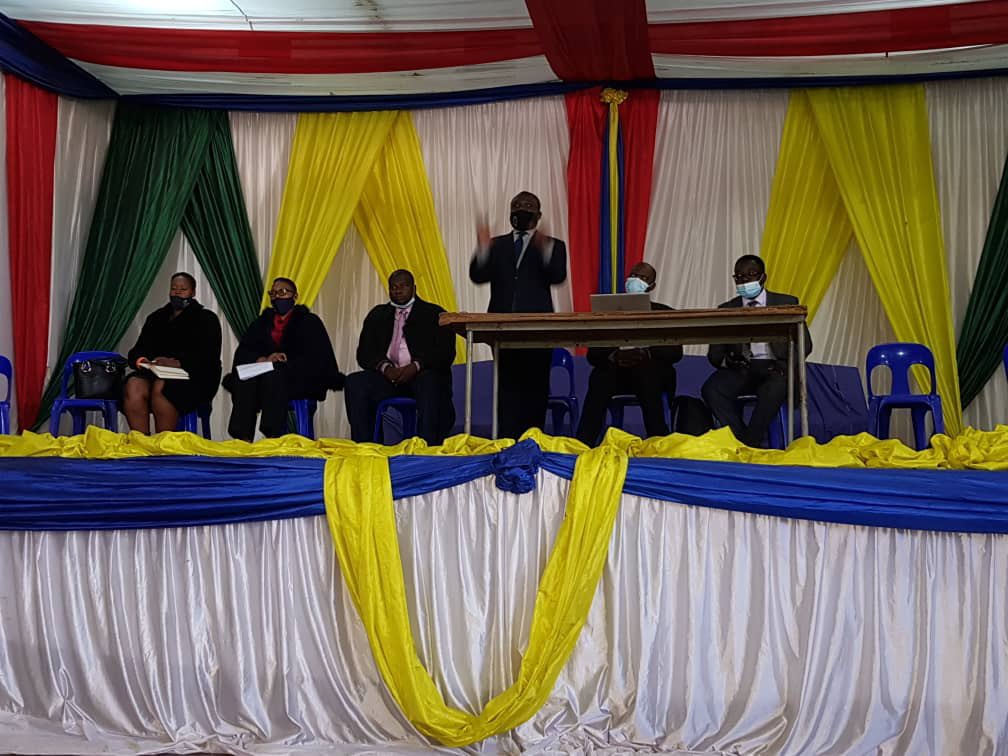|
Getting your Trinity Audio player ready…
|
By Zimbabwe Coalition on Debt and Development (ZIMCODD)
This week, the main showdown for us has been public hearings on the Public Finance Management (PFM) Bill. Communities in selected parts of the country shared their views on some of the issues that they consider as essential during the hearings that started on the 7th of June to today the 11th of June 2021.
The public hearings sought to gather views from the members of the public on how the Public Finance Management Act can be strengthened. ZIMCODD mobilised 575 members of the public including their Social and Economic Justice Ambassadors (SEJAs) to attend the hearings which took place in Mutare; Marondera; Harare; Chinhoyi; Bindura; Masvingo; Gwanda; Lupane; Bulawayo and Gweru.
The public hearings sought to gather views from the members of the public on how the Public Finance Management Act can be strengthened. ZIMCODD mobilised 575 members of the public including their Social and Economic Justice Ambassadors (SEJAs) to attend the hearings which took place in Mutare; Marondera; Harare; Chinhoyi; Bindura; Masvingo; Gwanda; Lupane; Bulawayo and Gweru.
There was an evident improved participation of women and youth consultations on public finance management issues in the Public Hearings, ZIMCODD mobilised citizens to participate and attendance was recoded as follows:
. Mutare had 16 females; 32 males; 18 Youth; and 2 People with Disabilities, a total 44 participants.
• Masvingo had 23 Females and 32 males giving us a total of 55 participants. It was noted that females had more contributions a further indication of improved women participation in public finance issues;
• In Marondera, 28 females; 19 males; 26 youth; 1 person with a disability participated; a total of 47 .
• In Harare 24 females; 29 males; and 32 youth attended, a total of 53 participants
• Chinhoyi had 27 males; 18 females; 22 youth a total of 45 participants.
• In Gwanda 12 males; 79 females; 1 person with a disability, a total of 91 participants.
• Lupane had 35 males; 17 females; 15 youth; a total of 52 participants.
• Bulawayo, 35 females; 56 males; 52 were youth and 2 PWDS a total of 89 participants.
• Bindura had 16 females; 26 males and 23 being youth total of 42 participants.
• Gweru had 36 males; 21 females; 31 youth and 3 people with disabilities, a total of 57 participants.
One of the parliamentarians noted that “if there were no ZIMCODD people on the venues then the Parliament hearings of the combined Budget and Public Accounts Committee could have flopped. The Bill is technical and hence very few takers.”
Citizens raised their concerns and inputs about the PFM Bill, some of the emerging and recurrent issues were centred around the charges and penalties for public officials, the current system has proven to be weak as it does not clearly set out the penalties for misusing public funds. This remains an area of concern that needs urgent attention. The PFM Bill must be fully aligned to section 308 of the Constitution which speaks on duties and penalties of custodians of public funds and penalties should be revisited and made severe to restrain perpetrators.
Whilst the Minister of Finance and Economic Development declared another Budget Surplus there was a resounding call for transparency and accountability in public finances as citizens wonder how this surplus is achieved when most of the people are facing various socio-economic challenges. Citizens impressed upon their right to know how public funds are expended as they are major contributors through taxes.
Below is a summary of concerns raised on the PFM Bill during the public hearings:
• Introduction of punitive measures which must be well pronounced in the PFM Bill, some fines are too insignificant in comparison to the funds being embezzled by the public fund’s custodians.
• There must be a mandatory jail term for stolen public funds, paying back the money, and blacklisting the person so that they are not employed anywhere including outside of the country.
• Declaration of interests must be introduced at the entry point in a public office.
• There is a need for attention on Clause 3 of the Bill it should make public finance management principles a statute as contained in Chapter 17 of the Constitution. The Bill should be more detailed by including other sound public finance management principles enshrined in section 298 of the Constitution, these should be inclusive of fair taxation, equitable use of revenue, expenditure being directed to national development.
• On Clause 6 – internal auditor must have a reporting obligation to the Treasury and not dual reporting obligation to the Accounting Officer and Treasury.
• Clause 9 inserts of the new subsection 8 replacing subsection 12 (b) – it should be worded clearly and in simple terms.
• Clause 14, The Accounting officer should never be forced to comply with orders that are not allowable.
Furthermore, the citizens noted that the PFM Bill should strengthen and advance local and national budget transparency, participation of women; meaningful citizen engagement, and consultations in the budget-making processes including adequate notices to the public. The need for gender-responsive budgeting to minimise gender-blind spending and gender-related inequalities was noted.
The public hearings directed that parliament must actively play its oversight role by ensuring that corruption is dealt with, and the Bill is an opportunity of providing clauses that should address this. The bill must deal with corruption issues, it must be grounded on international best practices and there were calls for all anti-corruption agencies to work closely with Parliament for swift actioning of corruption cases and this warrants the need for an Anti-corruption committee. Related to this, the citizens called for Tax transparency as a necessity in the management of tax by ZIMRA as this is one of the most assuring ways of gaining the public’s confidence in tax mobilisation and management processes.
